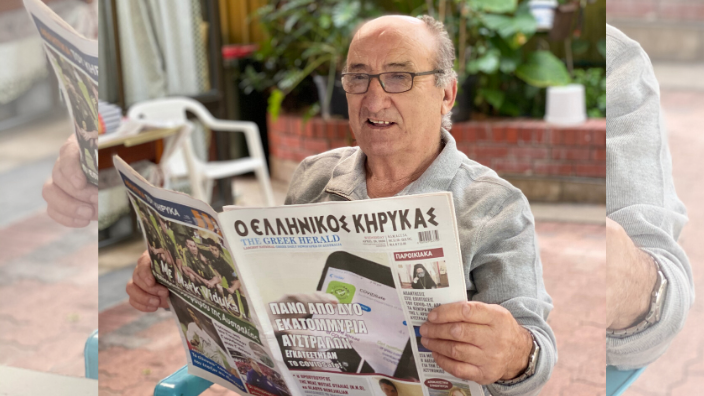By Argyro Vourdoumpa
In Greek culture, food is so much more than sustenance – it’s about history, culture, comfort, family and life itself. It’s also a great way to connect generations past and present.
Christina Panagopoulos, an Adelaide based food blogger and marketing professional, learnt to cook from her mum, mother-in-law and the cookbooks she has been gifted. But she knew that this wouldn’t be the case for her kids.
For the last two years, she has been building her online cookbook in an effort to make Greek cooking fun and accessible for the future generations of Greek Australians.
Growing up Greek in Australia:
After they got married in Greece, Christina’s parents came to Australia hoping for a better life. They made Adelaide their home and started a family.
“My memories were growing up with a strong sense of Greek culture. We attended Greek School, our local Greek Orthodox Church, had regular name day and birthday parties with our relatives in Adelaide, attended Greek dances and ate Greek food. We lived a Greek way of life,” says Christina.
“Greek music was also huge in my household, especially for my Dad who loved his traditional “tsamiko” music from his village in Arcadia, called “Psari.” My parents worked hard to ensure we got a good education, something that they were very passionate about. I also remember my father religiously buying The Greek Herald newspaper. It was his connection with all things Greek.”

Christina and her ‘Pieces of Greece’:
Although Christina did not particularly enjoy cooking when she was younger, she found herself going back to her mother’s Greek cooking lessons when she got married and started her own family.
“When I got married, those Greek cooking lessons suddenly became something that I sought. I drew on her knowledge, my mother-in-law’s knowledge and the cookbooks I had been gifted. I started enjoying Greek cooking and feeling passionate about it,” she says.
As her family grew, Christina started thinking about the legacy she would leave behind and how she could make it possible for her kids to learn more about and appreciate their background.
This is when the idea for her online food blog ‘Pieces of Greece’ was born.

Making Greek Heritage learning fun:
“Social media is a very powerful tool that has the ability to bring people together. I hope that one day, my children will embrace and connect with the footprints that I leave on Pieces of Greece and perhaps even continue that narrative,” Christina told The Greek Herald.
Asking her how this generation can better engage with the next generation, she replied that we should try and engage “on their level” and find ways to make it more “appealing and fun.”
“Perhaps an area of improvement can be to not become victims of our lifestyles. We are so busy that we don’t attend Church every week; we don’t volunteer our time for the local Greek organisation like our parents did. If this continues, we may see the demise of Greek community tenets that our parents worked so hard to build,” Christina said.
“More and more young girls – especially newlyweds and new mums- are sending me messages that they want to learn to cook Greek. This makes me so happy. I love seeing their creations.”
Try Christina’s Rizogalo Recipe:
Ingredients:
- ½ cup medium grain or Arborio rice
- 1 ½ cups boiling water
- 3 1/2 cups milk
- 2 tablespoons cornstarch (optional)
- 1 teaspoon vanilla essence
- ¼ – ½ cup sugar (adjust to taste)
- Cinnamon for dusting
Instructions:
- In sieve, thoroughly rinse rice under warm running water to remove starch
- Fill small saucepan with 1 ½ cups boiling water, pour-in rice.
- Stir, half cover with lid and simmer over medium heat for 12 minutes or until rice has cooked through and soaked up the water. Stir intermittently, to ensure rice doesn’t stick to base of saucepan.
- Meanwhile in a large pot, pour in milk, cornflour (optional) and stir. Warm up over medium heat.
- When milk has warmed, pour in cooked rice. Add sugar and vanilla. Stir constantly over medium heat for 15 minutes or until thickened.
- Pour into little bowls to serve, let it sit for 10 minutes and serve with ground cinnamon.
Kali orexi!
